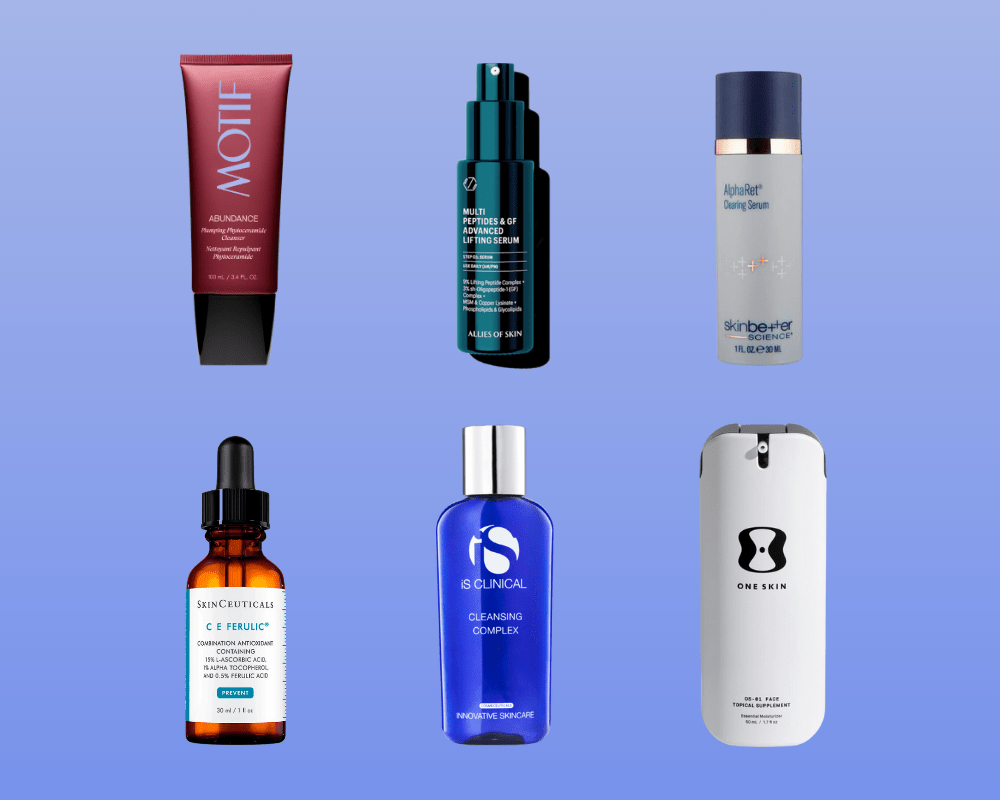
7 Best Medical Grade Skincare Brands
In today’s skincare world, where new trends pop up daily, more and more people are looking for products that actually work - not just the ones with the prettiest packaging...
A clear, clean, exceptionally smooth complexion is the ultimate skin goal—but one that is harder to attain as the years creep up on us. Our skin cycle lasts approximately 28 days, but as we age this time can take increasingly longer as our skin loses its ability to naturally exfoliate itself as fast. The longer cell turnover takes, the drier the skin begins to feel and can prevent products from effectively penetrating through to the healthy layers of the skin. The solution? Exfoliation. It may sound like the simple, clear answer, but incorporating proper exfoliation methods into your routine is crucial for maintaining healthy skin and longevity. Let's take a look at the advantages of exfoliation and how to effectively exfoliate the skin without overdoing it.
Exfoliation is the process of removing dead skin cells from the surface of the skin. As our skin cells regenerate, old and dead cells accumulate on the surface of the skin on all areas of the body as part of a natural process called desquamation. Once these dead skin cells accumulate, our face can often suffer as this build up can cause dullness, clogged pores and an overall rough texture—which is where exfoliation comes into play. Through mechanical or chemical means (more on this below), exfoliation breaks down bonds between dead skin cells to remove any old cells from the skin’s surface, thus revealing fresher, youthful looking skin underneath.
Various methods and products can be used to help speed up cell turnover to achieve softer, smoother skin. Understanding both physical and chemical exfoliation is beneficial so you know which method is best suited for your skin needs and concerns.
This involves physically scrubbing away dead skin cells using abrasive particles or tools. Often when people think of exfoliation, they associate it with popular mechanical exfoliating methods or tools such as cloths, brushes, and sponges. These tools are effective at sloughing off dead skin, however it is important to use gentle application and avoid overuse. Skincare products also contain ingredients that can mechanically exfoliate the skin too, such as beads, fibers, and seed powders. However, some are more aggressive than others – notably, crystal powders, walnut shells, and apricot kernels – due to their rough and jagged texture which can cause micro-tears in the skin’s surface leading to redness, irritation, and/or infection.

This method involves using acids or enzymes to dissolve the bonds between dead skin cells. Chemical exfoliants are applied topically to the skin to chemically remove the outer layers of skin. Compared to physical and mechanical exfoliation, chemical exfoliants penetrate deeper into the skin and are particularly effective for treating acne and clogged pores. Common ingredients found in chemical exfoliant products include Alpha hydroxy acids (AHAs) such as glycolic acid and lactic acid, or beta hydroxy acids (BHAs) like salicylic acid. These acids are used in different concentrations – often ranging from 2 to 70 per cent – depending on whether they are in beauty counter products, professional treatments, or prescribed for use by dermatologists.
Chemical exfoliation products come in many forms such as:
A cosmetic acid-based treatment used to remove the top layers of damaged skin cells, allowing the skin to blister, then peel off. When used by estheticians, facialists, and dermatologists – chemical peels often have higher doses of acids in them, making them very potent and effective methods at exfoliating the skin. Nonetheless, these are often more costly and require down time to allow the skin to heal. For gentler at-home use, chemical peel and resurfacing skin care products are also more cost effective options that can be easily slotted into a weekly skincare regimen.
Chemical exfoliants can also come in many different forms of skincare products. While scrubs, serums, and wipes are more generally well known, not everyone knows about exfoliating toners which can be a great addition to a skincare regimen for those wanting an easy, mess-free way to exfoliate at home. Chemical exfoliants often contain fruit enzymes (e.g. pineapple) and acids at lower concentrations making them safe for at-home use without professional oversight. While they’re less invasive to the skin, they may take consistent use overtime to see results.
It’s important to select the type of exfoliation method that best suits your skin type to avoid impairing your skin’s barrier. According to the American Academy of Dermatology, mild chemical exfoliation is best for those with dry, sensitive, or acne-prone skin, as mechanical exfoliation may be too irritating. For those with oily, thicker skin, stronger chemical treatments or mechanical exfoliation can be used. However, use caution if you have a darker skin tone (as this can lead to dark spots) or are healing from wounds such as bites, breakouts, or burns.
While we may not be able to reverse age, our skin can certainly give the appearance of a more youthful base with proper exfoliation, however it’s important to avoid going overboard — exfoliating too frequently can lead to irritation, inflammation, redness, peeling, and increased sensitivity to other products. With proper and consistent use, exfoliation can be great for accelerating cell turnover that is compromised with age and helping to promote generally healthier skin. If you aren’t exfoliating already, we suggest slowly exposing your skin to all of its benefits that will leave you with the brightened, smooth and rejuvenated glow you’ve been searching for!